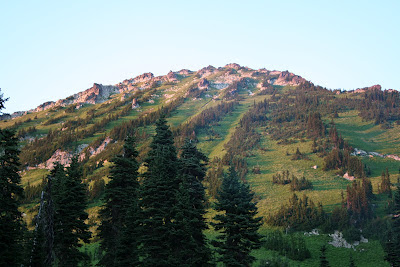
Arrived in Zurich, Switzerland after a 12-hour flight from Portland on Wednesday, August 22. My goal? To see the Swiss Alps. Daughter Gina, a frequent traveling companion, arrived on August 27.
Zurich provides contrasting styles: much of the town’s ancient center (above and below) has been carefully preserved yet contemporary buildings abound. Frequently acknowledged as one of Europe's most livable cities, it's also quite pricey: very few street people here.
A modern financial center with the best public transportation system in the world, the largest city in Switzerland also has a grungy feel that would be reminiscent of parts of any American metropolis.

The good news for residents of Zurich is that they are usually well paid, with top-flight health insurance and other amenities. The bad news is the town in quite expensive, with perhaps the highest cost of living in the entire European continent.
The guide on our tour of the city noted that the cost to rent a modest flat starts at about 2,500 francs (about $2,500) a month. The cost to purchase a modest home begins at about 3,500 francs; as a result, only about six percent of the locals own their own home, she said. Everybody else rents or lives in public housing, including a large number of senior citizens.
 Zurich is, nonetheless, beautiful and the quality of life is quite superior. Positioned on the north end of Zurichsee (Lake Zurich), the town was initially a Roman encampment known as Turicum. Germanic tribes arrived in about 400 A.D.
Zurich is, nonetheless, beautiful and the quality of life is quite superior. Positioned on the north end of Zurichsee (Lake Zurich), the town was initially a Roman encampment known as Turicum. Germanic tribes arrived in about 400 A.D.
While walking down to the Hauptbahnhof (main train station) in the city center, Gina and I could overhear German, French, Italian and English speakers, as well as people speaking languages from around the world, including Indian, Japanese and many others.
The predominant language, however, is German, though it’s an interesting variation, or dialect, called Swiss-German (Schwyzertsch). Most have no trouble understanding High German, but in private, many speak the Swiss variation, as different to German as Dutch.
Even the servers at my hotel, X-Tra, were from somewhere else: Mike from South Africa; Faiz from Burma; and Vladimir from Latvia. Zurich, much like Munich in Germany, is truly a cosmopolitan city.




